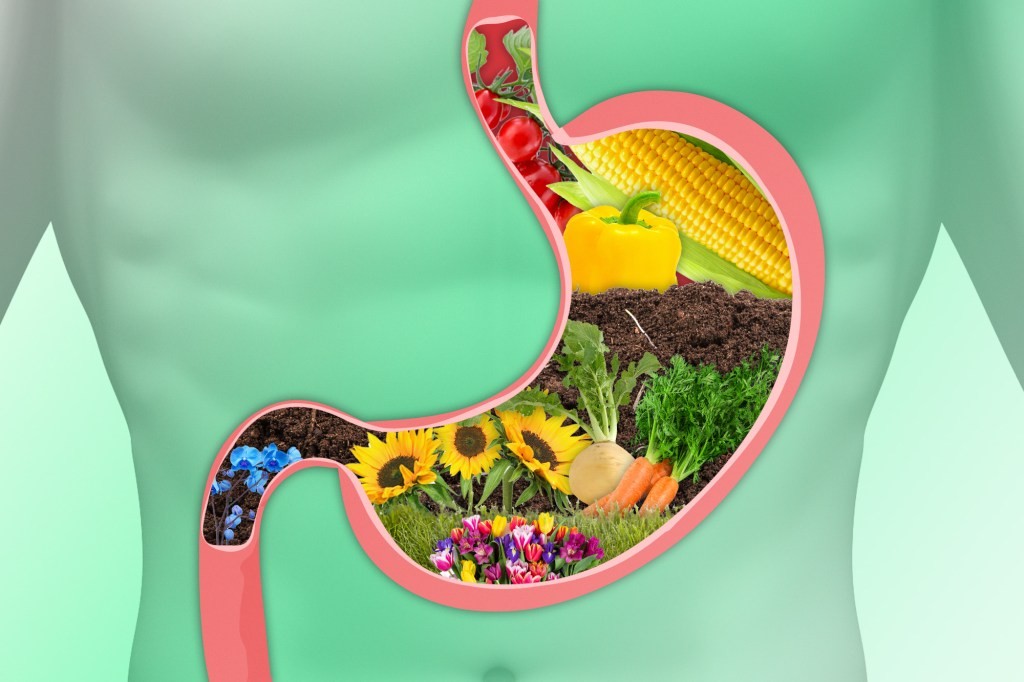Rewild Your Gut — The Free Five-Step Plan to Reboot Your Microbiome (No Supplements Required)
Your gut microbiome is begging for dirt, hugs, and far less disinfectant. Dr. Wendy Johnson, a family physician, writer and public health professor, warns that if you don’t nurture the bacteria in your belly like a garden, you could be inviting serious trouble. We depend on our microbiome for critical functions our own digestive system can’t perform alone: breaking down fiber, regulating metabolism, absorbing nutrients, synthesizing vitamins, controlling inflammation, and fighting pathogens. The gut also has a direct line to your brain chemistry. "An unhealthy microbiome can contribute to problems with digestion and inflammatory conditions in the gut, but also obesity, metabolic disorders, diabetes, depression, dementia, anxiety, allergies, asthma and even autoimmune disorders," Johnson says. In her new book Kinship Medicine: Cultivating Interdependence to Heal the Earth and Ourselves, Johnson outlines how to reseed the gut using natural methods, drawing on lessons from her Italian grandparents who farmed, fished and foraged through life. Johnson offers five easy ways to reseed your gut—no pricey pills or potions required.

In This Article:
What the microbiome does and why balance matters
A healthy microbiome handles digestion, regulates metabolism, helps nutrient absorption, synthesizes vitamins, controls inflammation, and fights pathogens. When balance shifts, the consequences can show up as digestive trouble and systemic inflammation. The ripple effects go beyond the gut: obesity, metabolic disorders, diabetes, depression, anxiety, asthma, allergies, and autoimmune disorders can all be linked to microbial health. Johnson isn’t swayed by hype around supplements. She calls pre-, pro-, and postbiotics “weak substitutes for enriching our whole ecosystem” and invites a natural approach to nurturing the microbiome. "What if instead of expensive supplements, we tried to rebuild or reseed our microbiomes in more natural ways?" she asks.

Five natural steps to reseed your gut
Step 1 — Walking and breathing in the woods: fresh air carries friendly microbes and can boost your mood and reduce inflammation. Step 2 — Immune-boosting phytoncides: antimicrobial plant chemicals from conifers help start a healthy immune response. Step 3 — Move in nature: being physically active outdoors lowers cortisol, improves gut motility and supports immune regulation. Step 4 — Social ties: close-knit networks increase microbial diversity; every hug or shared moment exchanges microbes and stimulates oxytocin and serotonin. Step 5 — Gardening: gardening, weeding, digging and composting recharge your microbiome; soil contact brings beneficial microbes and reduces stress.

Nature’s mechanisms: how environment shapes your gut chemistry
"Walking and breathing in the woods benefits your microbiome in several ways," Johnson says, noting that exposure to nature can shift microbial communities and inflammation. Fresh air brings microbes like Mycobacterium vaccae, which can boost feel-good brain hormones and lower inflammation. In many places you also breathe in phytoncides—antimicrobial plant chemicals found especially in conifers—that help kickstart a healthy immune response. Being physically active in nature lowers cortisol and improves blood flow, gut motility and immune regulation, all of which support a healthy microbiome and digestion. Social connection matters, too: people in close-knit networks have higher microbial diversity. Hugging, kissing or simply being with others swaps microbes and stimulates oxytocin and serotonin, supporting gut–brain balance. Having a dog or cat can also diversify your microbiome and reduce stress.

Home, hygiene, and mindful living: balancing microbes at home
Your home microbiome is your home ecosystem—constantly in communication with your internal microbiome and interior ecosystem. Many commercial cleaners, detergents and pesticides contain broad-spectrum biocides that wipe out both good and bad bacteria. Overuse can irritate the skin and contribute to antibiotic resistance. Strongly scented soaps, detergents and fabric softeners can strip the skin’s natural oils and alter pH, creating a hostile environment for beneficial microbes. Natural, fragrance-free, biodegradable cleaning products are less aggressive toward beneficial bacteria and tend to be gentler on your microbiome and endocrine system as well. "Even keeping your windows open (if your air quality isn’t bad) helps support microbial diversity," Johnson adds. Open, mindful cleaning and air flow can support balance in your home microbiome.


